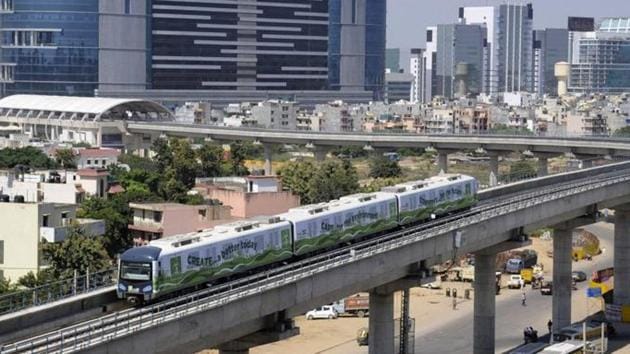Three reasons why a paradigm change is needed in Metro Rail planning
If done right, an integrated Metro system can do wonders for a city. If not, these will be reduced to legacy systems, the price of which would be paid by the coming generations
Last week, it was reported that not all is well with Gurugram’s Rapid Metro — India’s first privately built Metro. As per reports, Rapid Metro has sought a compensation of nearly ₹1,500 cores from the Haryana government because of losses incurred due to apparent breach of contract conditions. It was also reported that the Haryana government has rejected these charges and has blamed the operator for the problems.

Only time will tell who is right but the Rapid Metro story comes after four years of a private sector operator pulling out of Delhi Airport Metro line, citing violations of the concession agreement. Less than a year ago, a consortium of private operators decided to stop the operation of Mumbai’s Mono Rail project due to operations and security issues.
However, it is not to be misconstrued that problem lies with the private sector getting involved in the Metro rail projects. A couple of weeks ago, it was reported in the media that the Comptroller and Auditor General (CAG) found that Jaipur did not need Metro till 2025. CAG remarked that it was a hasty move by the government to build Metro, citing its dismal use. It has not been a smooth sailing for Metro rail projects in the country. Broadly, three main reasons should be considered for the problem:
A Status Symbol
Metro rail is an important part of the mobility mix. It is a system which can carry up to 80,000 passengers in each direction, but it also comes at a huge cost. An elevated Metro costs around ₹250 crore per kilometre while the underground line can cost up to ₹500 crore per kilometre. And, this is only the capital cost. The cost of operation and maintenance cost is extra. Therefore, logic dictates that Metro projects should be planned very carefully and judiciously. However, going by the current scheme of things, having Metro in a city has become a status symbol. For example, Gurugram is yet to get a full-fledged public bus service but it built country’s first private Metro, five years ago. Similarly, several tier 2 and 3 cities which don’t even have a proper bus system want to Metro, even if it means just a few kilometres of the infrastructure.
Over estimating demand
In a bid to get Metro at any cost, it is often seen that the project proponents often overestimate the demand to justify the huge investment. While this may help the project get approval, but the claims are proved wrong when these projects are implemented. For example, the Rapid Metro in Gurugram was supposed to carry about 1 lakh passengers per day in the base year itself. However, the average ridership was around 30,000 passengers for phase I of the project. Five years later, and even after adding the second phase to its network, the Rapid Metro is reportedly carrying around 50,000 passengers per day, which is way below the estimation.
Opposite Infrastructure planning
We need to remember that transportation is a derived demand. The need for transport comes from land-uses and activities. Therefore, when a city builds transit which is Metro in this case, it is expected that the land-use and transport infrastructure that is developed around the Metro line will be able to support it. This, in technical terms, is described as Transit Oriented Development (TOD). However, a closer look at the cities suggests that they are doing anything but TOD. The second phase of Rapid Metro in Gurugram was built along the Golf Course Road and a progressive city would restrict the use of private automobiles along Metro corridor. But in this case, the city did the opposite. Expanding the road to 16 lanes eliminated the possibility that people who wanted to save travel time and will use Metro instead of the road. In addition, the signal-free corridor which doesn’t even have a symbolic footpath also made sure that walking along or crossing the road would be nothing less than a nightmare. This made Metro inaccessible, unfortunately by its design.
There are also other issues surrounding the use or rather the lack of it such as pricing which is evident in Delhi Metro being forced to hike fares a drop in ridership. The other issue is of first and last mile connectivity. These can be resolved and some of the cities are doing it.
So, while implementing a Metro projects governments must consider where, when and how the systems are built. If done right, an integrated Metro system can do wonders for a city. If not, these will be reduced to legacy systems, the price of which would be paid by the coming generations.
Therefore, we need to remember that “the difference between men and boys is more than the cost of their toys”.
(Amit Bhatt is the director of integrated transport, WRI India)
Stay updated with all the Breaking News and Latest News from Mumbai. Click here for comprehensive coverage of top Cities including Bengaluru, Delhi, Hyderabad, and more across India along with Stay informed on the latest happenings in World News.
Stay updated with all the Breaking News and Latest News from Mumbai. Click here for comprehensive coverage of top Cities including Bengaluru, Delhi, Hyderabad, and more across India along with Stay informed on the latest happenings in World News.






